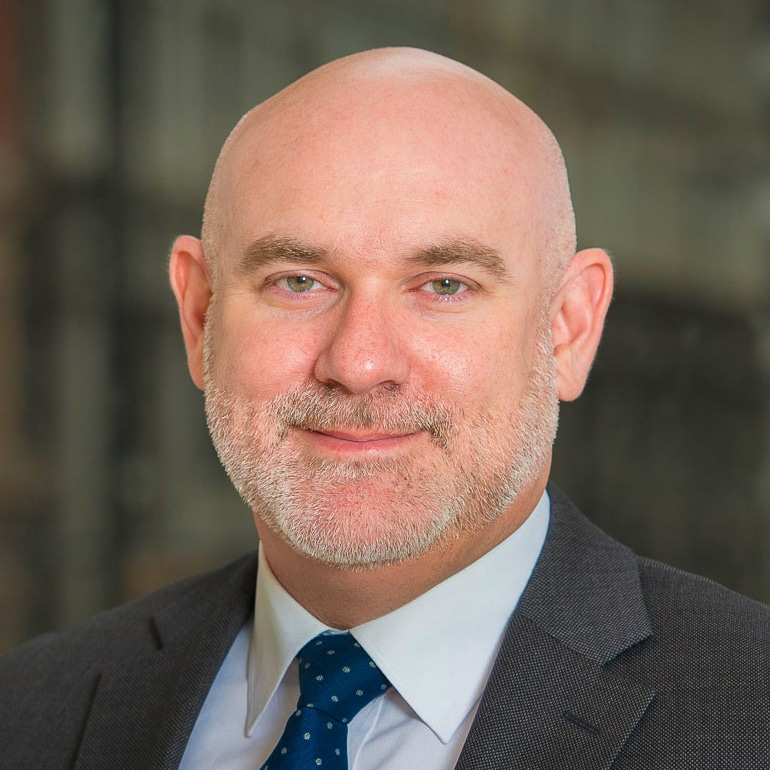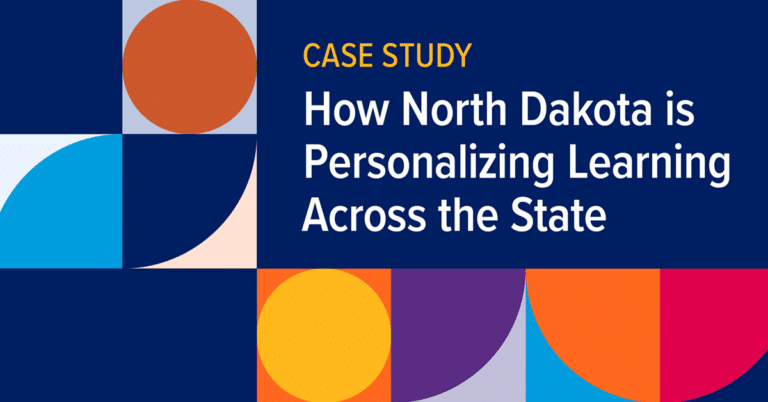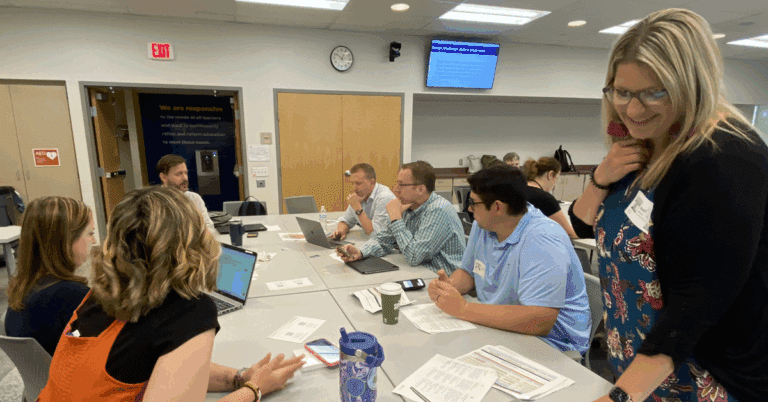During a session with the Grantmakers for Education Annual Meeting in Austin, Texas, Kresge Foundation, Blue Meridian Partners and KnowledgeWorks crafted a conversation about viability and power of place-based work. The conversation included what distinguishes local- versus state-level efforts; indicators that signal readiness for place-based, collaborative efforts to take root; and what it means to define and measure impact. Place-based strategies are increasingly seen as a critical approach to advancing education initiatives and provide deeper inclusion of and ownership by proximal stakeholders to the change process.
The goals of the session were to:
- Define what constitutes place-based work
- Explain how it is a critical tool for helping to address systemic and intersectional issues
- Illustrate the many entry points to place-based work
- Identify the focus areas that are essential to the success of place-based efforts
Each of the partners in the presentation spoke to their work that focused on a different level of the system to mobilize their place-based initiatives.
- The Kresge Foundation’s work focused on Detroit, Michigan with efforts on how cross sectoral partners, education institutions and funders can come together to reimagine education, with a PK-post-secondary lens, at the neighborhood-level.
- Blue Meridian Partners focused on their cross-sector social and economic mobility efforts in Dallas, Texas with the local collective impact partner, Commit, and the Child Poverty Action Lab.
- KnowledgeWorks examined a state-level effort to shift both policy and practice in North Dakota toward transforming to a personalized, competency-based learning system.
Jackie Statum Allen, grantmaking director at the Bush Foundation, joined me in sharing about the work in North Dakota, as did Kirsten Baesler, North Dakota’s superintendent of public instruction. They helped to tell the story of our work in North Dakota, starting with the policy and advocacy work that led to a policy audit and the creation and passage of HB2186 in 2017. HB2186 created greater flexibilities for districts in the state, leading to a multi-year Bush Foundation investment to advance personalized, competency-based learning. This work incorporated policy change, the development of a state-level Profile of a Graduate and aligned Learning Continuum with deep change work at the district level.
How student-led projects student-led projects incorporated service learning at the North Dakota Youth Correctional Center. https://knowledgeworks.org/resources/hands-on-work-team-effort-pandemic-learning/
One of the most striking developments in North Dakota has been a distinct rise of district ownership of the work to drive systems-change at the local- and state-levels. The work in North Dakota is an exemplar of how the Bush Foundation has approached its investments. Their strategy – which is regionally focused on Minnesota, North Dakota, South Dakota and the 23 nations that share the same geography – is a place-based strategy that empowers local stakeholders to lead and own the work.
There is a distinct power in place. Place-based strategies lead to greater engagement of stakeholders and, over time, greater ownership of the work. This, ideally, can help to drive longer-term sustainability of the investments, and in the direct case of our work, both the advancement and transformation of the education system through personalized, competency-based learning. Our work with districts and building strong connections and feedback loops between practice and policy help to drive systems change. We are seeing this in North Dakota as well as other states – and it starts with mobilizing change at the local- and district-level, where direct connections to students, parents and guardians, teachers, district leaders and community stakeholders helps them to shape, grow and ultimately own the work.
Becoming a system means that we have to know that those decisions that we just made together matter the most.







